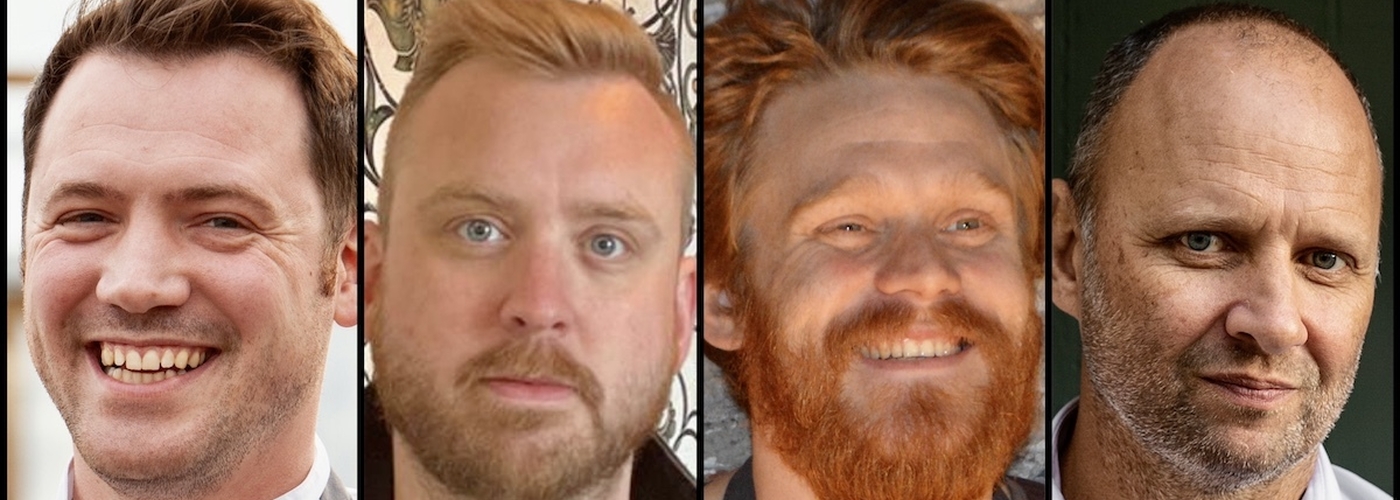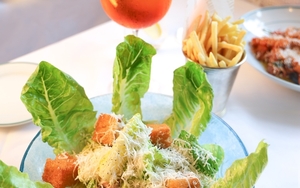Meet the chefs behind these sustainable fine dining restaurants
I’m talking to TV-famous, Michelin-stared chef about fields full of farting coeliacs. Just another day in the office? Maybe. But there is a good reason for it.
I don't live my life like some sort of zero-waste deity where I don't put anything in the bin and walk around in hemp pants
This year, the Michelin Guide launched a new, fully compostable version of its esteemed star. These Green Stars were cascaded over the world’s most sustainably focused restaurants.
The tyres, they are a-changing.
Among those decorated were four restaurants in the North. I decided to have a chat with the four Northern lights behind them: Sam Buckley of Stockport’s Where The Light Gets In, brigadier-level Michelin stalwart Simon Rogan of L’Enclume in Cartmel, newbie Nick Friar of hypha in Chester, and the aforementioned Tommy Banks of The Black Swan at Oldstead.
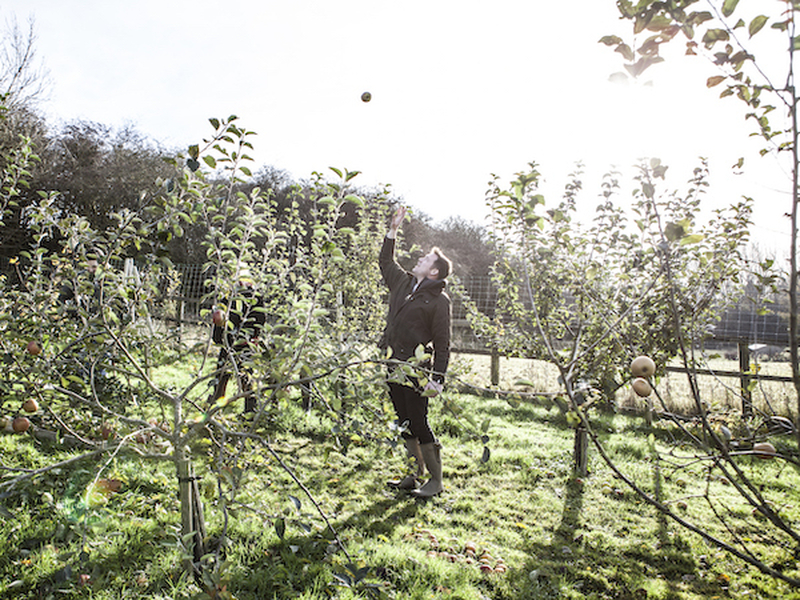
Due to a year of almost permanent restaurant closure - the North was harder hit than many areas - the chefs and restaurateurs I talked to had to pivot wildly during the pandemic. They set about creating produce stores, cook-at-home meal kits, veg boxes and mail-order cocktails. Many of them continue to deliver meal kits, although keeping them sustainably packaged has been a challenge. Woolcool must have thought it had won The Pools. From tin foil to potato starch “plastic” and bagasse (sugarcane pulp) to glass, you won’t see multi-layered, monogrammed, glossy boxes and bags from this lot.
They did all this while finding time to support their communities in various ways from Simon Rogan’s £5 meal boxes and free meals for the vulnerable to Sam Buckley rolling up his sleeves to cook for key workers via Eat Well MCR.
Michelin celebrates sustainability - finally
A tendency towards green thinking naturally comes with a more empathic view of society and the part one plays in it. An odd juxtaposition then, the Green Star, with Michelin’s propensity for preposterous, privileged luxuriating. A foie gras course on the menu is practically a prerequisite to win a standard star - never mind the fact that Michelin is a leading tyre manufacturer. Although the rubber giant has pledged its tyres will be 100% sustainable by 2050.
It’s about time. Perhaps even a bit late. But just like Gordo finally acknowledging the relevance of Instagram (he’s still not there yet with natural wine), let’s celebrate that the fine-dining fraternity has finally arrived at this point and given all four of the Northern mavericks fuel to step up their game.
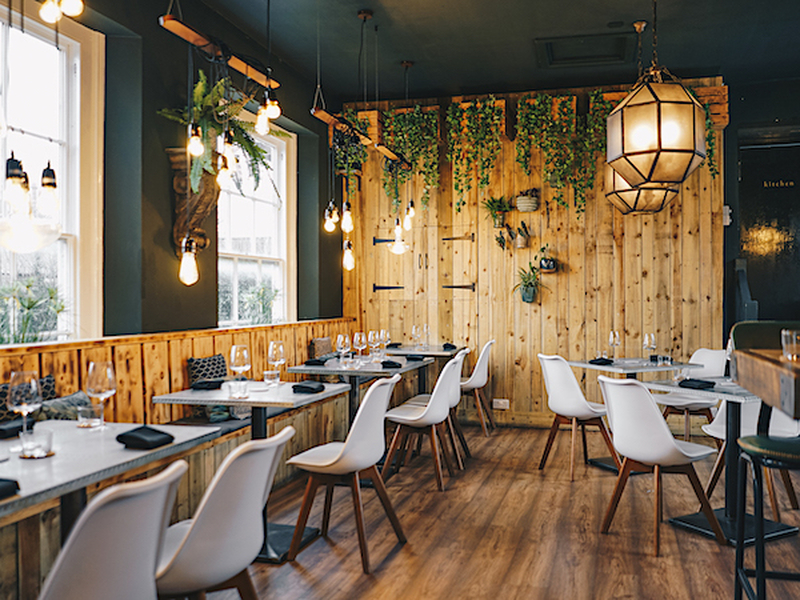
“Anything that turns a conversation towards climate change and sustainability is a good thing,” says Tommy Banks.
“Unfortunately, coronavirus has put a lot of really important issues on the back burner. This year, the top of the agenda has to be future sustainability.
“Now we've been recognised for our ethos on sustainability, people will be looking at us on a pedestal as one of the greenest restaurants. People are gonna hold us accountable and really scrutinise what we do - which I think is great. It pushes us even more.”
Nick Friar says he was "completely surprised" by the Green Star, though hypha was included in the Guide in 2019 - having only been open four months when the inspector visited.
"Getting an acknowledgement like this after technically one year of being open [due to lockdown closures] is a great thing for us.
"It's given us that motivation to really push on. It’s such a unique award, only 23 restaurants - and it's the first time they've ever done it. Silo in London was a big influence on us from day one. They were officially the first zero-waste restaurant in the UK. We are 95% of the way there."
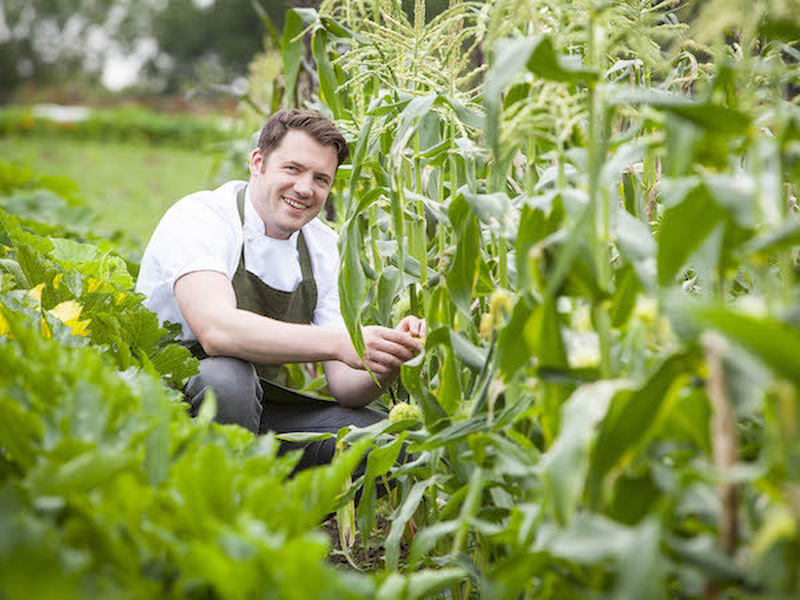
Sam Buckley cut his teeth in Michelin-starred restaurants and many believe WTLGI should have had a star by now. He remains characteristically nonchalant about awards but acknowledges this is a positive.
“Obviously, it's a great accolade. The team are really happy. We’ve been doing this for four years. This is what we work hard at.”
L’Enclume’s Simon Rogan has seen more stars than Patrick Moore, but he’s palpably moved.
“During these times, the sustainability angle is a really valuable thing to have. It really does mean the world,” says Rogan.
“L’Enclume's got the Green Star but we carry out the same practices in all our restaurants. This award is for everyone in the whole group. I've got a great team around me that share the same philosophy.
“We've spoken about having a sustainability officer looking at everything that we do across every restaurant. There's still more that we can do.”
Environmental issues during a pandemic
Some say viruses go hand in hand with ecology and the overall health of the planet, and that COVID 19 has highlighted our need for a big change to our way of life. Banks agrees - he thinks the whole hospitality industry will change over the next couple of years, with sustainability no longer a unique selling point but the standard.
“We're getting our comeuppance for how we've been as a species over the last 100 years. It's made so many people more mindful,” he says.
“Restaurants will have to keep pushing their green credentials in the same way supermarkets do.”
Buckley is ready for a seismic shift in the whole capitalist system, “My daughter's two and a half now and I'm like, 'What the fuck is this place gonna look like when she’s my age? What are her skillsets gonna need to be?’ I don't think enough people ask why we're in this situation. It's not an accident is it?”
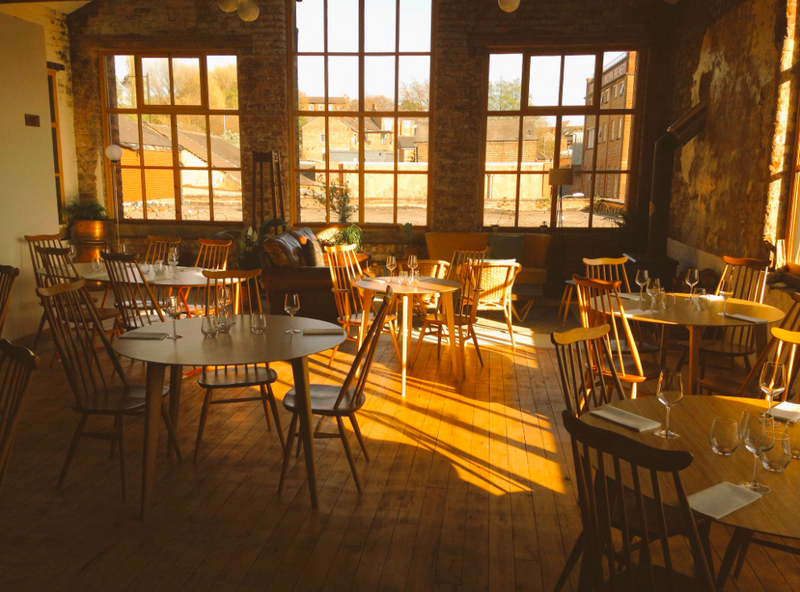
Like many, Buckley is focused on the restaurant’s impact on its immediate environment too. This means looking after the health of his chefs as well as consideration for the farmers and fisherman they work with and the Stockport community.
“It's hard to not sound like an earnest, self-righteous twat but when you start to explore those kinds of motives in business ethics, it just makes sense. Only catching 10 kilos of line-caught mackerel on a boat means it won’t get crushed under the weight of the rest of the mackerel so it just tastes better.
“Veg that's not got fertilisers or isn’t grown really fast has got loads of magnesium and salts from the soil - it just tastes better. When the chefs haven't worked six days in a row, 90 hours and their head's fucked, they just work better. It's not just being this hippy that wants the world to be a better place. I want the business to run. It seems easier to me.”
Should we be eating less meat and should restaurants be enabling that?
“Yes, but I don't think it's just a case of eating less meat,” says Banks. “When you do eat meat, it's got to be raised in a sustainable, ethical and environmentally friendly way.
“On Netflix, there’s a documentary called Cowspiracy which is quite one-sided. It's very damning of the amount of methane cattle produce as a waste product.
“Bear in mind, cattle will just eat grass and be perfectly happy on it. But the emissions from an animal fed on corn, compared with emissions of an animal fed on grass, is about 80% worse.
“Cattle aren't supposed to eat corn. They were built to eat grass, that's why they got five stomachs. So effectively, they've got IBS when they eat corn. They're basically coeliacs. If we got a field full of coeliacs - that's quite a funny idea - and made them eat just corn, they'd be farting like mad. It would be stinky. And that's basically what cattle are doing.”
“What's brilliant in Britain is that we have an awful lot of pasture-fed animals. Rather than trying to grow things as quickly as we possibly can so we can kill them and eat them because that's commercially viable, we need farmers to be able to grow things in a more slow and sustainable way.
“I think the only way we can really make it sustainable is for the government to subsidise more sustainable farming techniques. I don't think people are gonna overnight be happy to start paying more.”

Banks doesn’t have a vegan menu but meat features sparsely, “If you look at our tasting menus, there will only be one meat course out of 14. It’s all about making it sustainable. Ditch Veganuary, just make a conscious lifestyle change to source your ingredients in a more sustainable way. Educate yourself in that way and, eat less meat. Don't just do a month with none and think you've changed the planet.”
"A lot of people who come to our restaurants who are vegetarian or vegan but they're happy to eat whatever we serve because they know we’re doing it from an environmental and ethical point of view
“I use a lot of eggs and butter, the vegan alternatives aren't things that we grow on our farms so it doesn't fit our ethos of sourcing ingredients.”
Rogan agrees, “I've been saying for years about the perils of animal agriculture and the effect it's having on our planet. Yes, we should all be eating less meat. I'm not a vegetarian by any stretch but [I eat meat] in moderation.
“I am fortunate to have a damn good organic farm so I eat a lot of vegetables. The majority of vegetables are grown conventionally meaning they're sprayed with seriously dangerous and toxic chemicals which are no good for you. For me, the only way is to choose organic products that are grown in a natural system, free from chemicals.
“Practising good sustainability can have a big impact on the planet in multiple ways. It can reduce restaurants' impact on the environment, lead to less waste, save money. Customers are attracted to a business which shows a greater understanding of sustainability.”
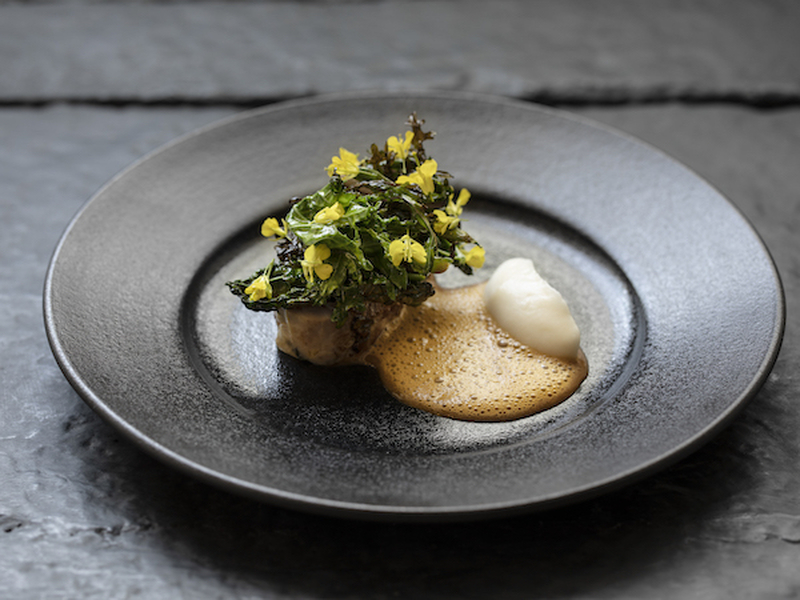
Buckley thinks everyone should be part of a responsible food system, whatever that looks like.
“We always say that we're part of a responsible food system and certainly we are when it comes to meat,” he says. “Whole animal butchery - we use absolutely everything. We only give a small amount of meat at the restaurant.
“Not everyone can eat how they want to eat. In Bihar, people eat rats but in the West we can choose not to eat meat. Not everyone is entitled but everyone should be entitled to choose. I think we should sort that out first. Veganism could be good. It's just sometimes a bit extreme. I just don't think we should shout at each other about it.”
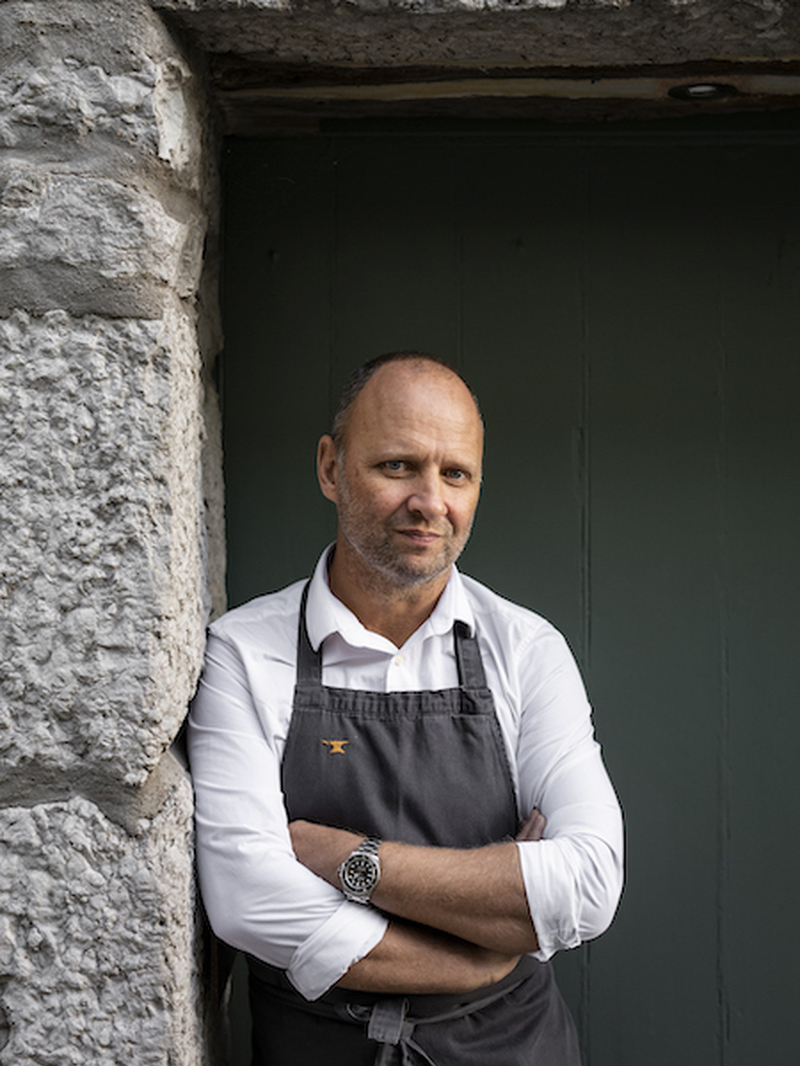
There's no meat or dairy on the menu at hypha, but Friar's keen to emphasise it’s not a “vegan restaurant”:
“We chose not to use any animal products because of the sustainability impact. Cutting that cycle off instantly reduces the farming side of things that can be detrimental to the environment - and obviously the cruelty element. We’re excited to have people who call themselves vegan in the restaurant but we don't want to put other people off. What we're trying to do is make incredibly tasty, clever, narrative-driven food with as much sustainable ethos as as possible.
But he does agree that people need to reduce their meat intake.
“It's pretty obvious that it's a health factor and an environmental factor. It's the big agriculture that’s hugely encroaching on the environment. Yeah, you can farm sustainably, but we had to make some decisions so animal products went. Also it means we can be a bit more interesting. To create some of the flavour profiles that you achieve from fermenting dairy or ageing meats we have to try and create that flavour compound another way.”
The growing popularity of sustainability
“It’s become more trendy,” says Buckley, “More people brush their teeth with bamboo toothbrushes. Green capitalism is on the rise. I think the industry's gone with the times.”
“Cheffing was always quite a bulky trade but it was artistic. I always found it to be this weird hybrid. As it got sexier, from say 2010, it started to attract a more cerebral demographic. Look at New York, all the artists who couldn't get work start working in restaurants. Lorcan and Sam who work here, Callum's just finished a politics degree. They're all more cerebral. They do tend towards the left, towards more socialist viewpoints, especially when they're young and more idealistic. I think that's why cooking has moved into a more sustainable understanding.”

Sustainability might be a buzzword right now but Rogan’s been quietly doing it for a long time. He launched "Our Farm" to access produce that was higher quality than anything they could buy.
“It's something we really have a passion for. We've not just done it to be part of a fad or as a PR stunt. If it was for financial gain, I would’ve given it up many years ago,” he says.
“Another main point of sustainability is being able to use every part of the plant. There's a lot of preservation either by pickling or fermentation or drying to give us a larder for the colder months.”
Is sustainable dining a middle-class trend though? Or is it trickling down to places like Bernie Inns and Wetherspoons?
“God, no,” says Buckley. “My auntie goes to curry club every Thursday at Wetherspoons. I don't know how they get away with making food so cheap.
“Like Michael Pollan says, we're paying for it somewhere. There's no way that that person is paying £2.50 for a burger and that's it. They're paying for it somewhere else. Whether they're eating human flesh or they're going to have heart disease in a couple of years or some poor Polish guy gets paid 45p an hour in a factory somewhere in Burnley.”
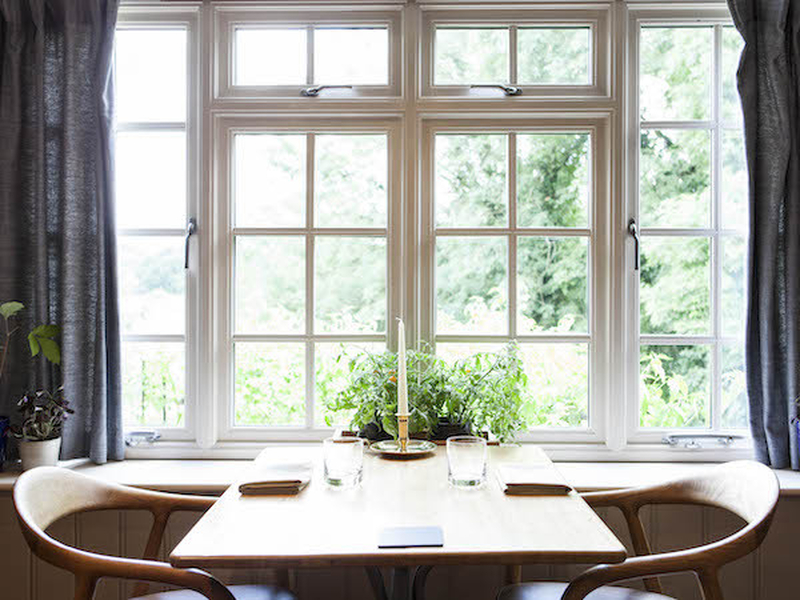
Therein lies the paradox. Climate change (like so many things) disproportionately affects the least wealthy. It’s all well and good telling people they should only be eating grass-fed beef when people are trying to survive on limited incomes. All the chefs I talk to are serving a certain demographic and charge exclusionary prices but agree the whole system needs to change.
“It's expensive to have people to process the food in the way that we need to,” says Buckley. “It shouldn't be. Food doesn't need to be that expensive.”
Rogan adds, “Making people aware to buy organic, buy locally is surely a good thing. These awards come from the top. People setting standards, doing trailblazing things. A movement begins and it will get bigger.”
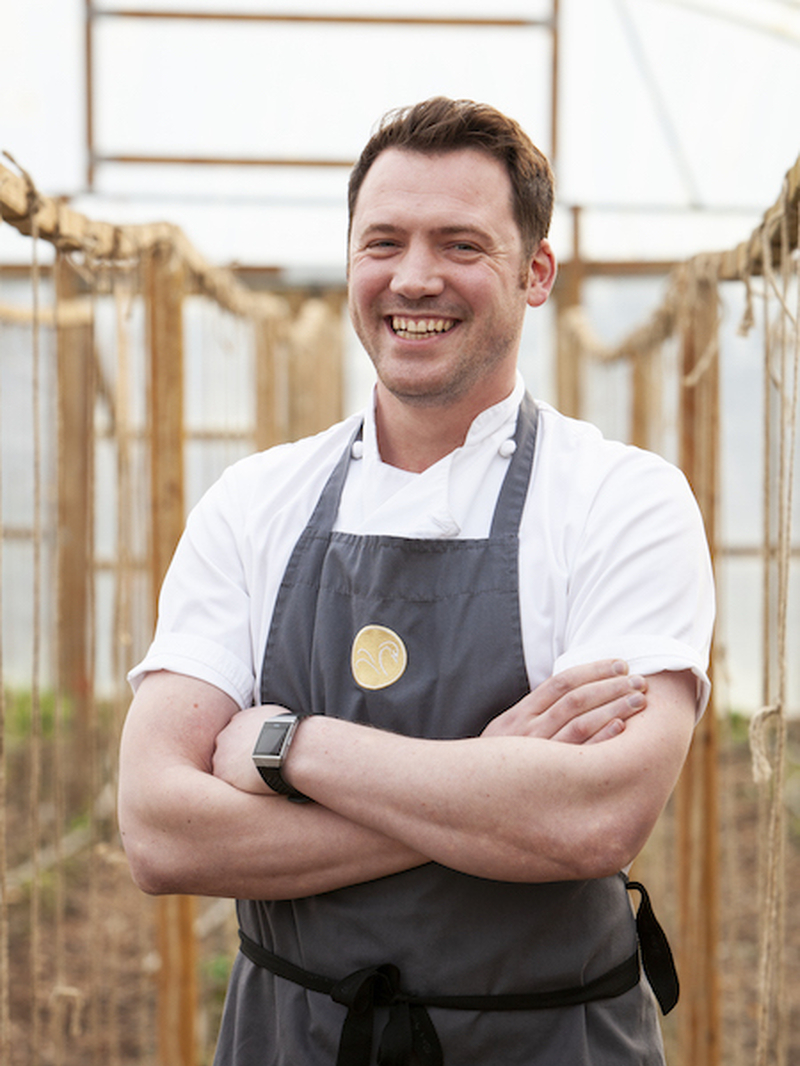
Grow your own
All of the Green Star restaurants we spoke to have farms or hyperlocal growers as a key element of what they do. Buckley has a micro-farm nearby as well as new venture “The Landing”, a little garden on a car park a short walk from the restaurant. The Landing is home to craft, ceramic and growing workshops and will host dinner collaborations with chef friends of the restaurant.
Rogan’s “Our Farm” is well established and intrinsic to everything the group does.
“We get some amazing quality ingredients and it connects the restaurant to its surroundings. It gives us total control to grow exactly what we want when we want,” he says.
“There's nothing like sowing a seed and seeing it all the way through to the plate. People are hooked by that and it's all reflected in the product.
“It is hard work but we've got a dedicated team of four guys constantly on the farm trying to maintain supply to all our very busy restaurants. Hats off to them but you even find commis waiters round there on their day off doing some weeding or watering. People are really interested in it. It’s not a chore. It’s something that we all love and want to cherish.”
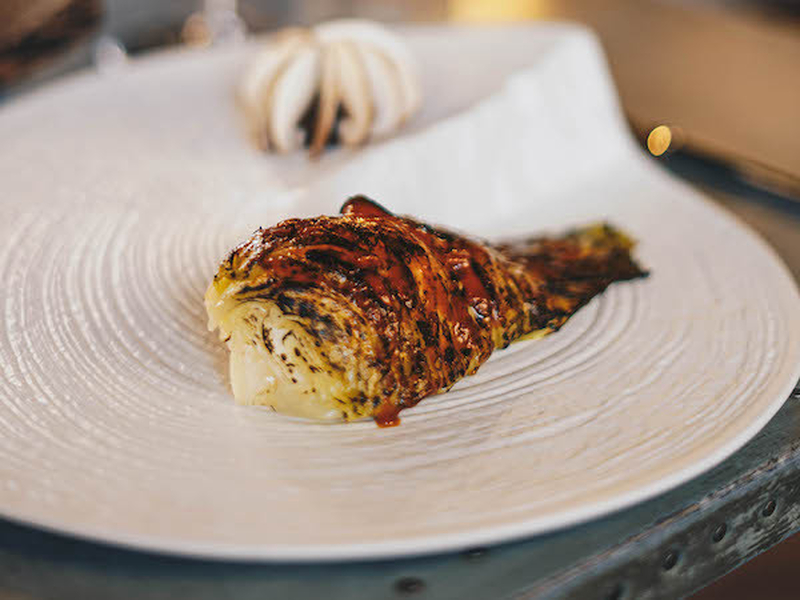
Banks grew up on his parents’ farm which still serves The Black Swan at Oldstead. He puts the Green Star award down to the fact that their food miles are so low from growing all the produce themselves.
“We're finding lots of inventive ways to preserve so in the winter, you have a menu made up all sorts of preserved ingredients. We're not flying ingredients from the other side of the world.
“My inspiration is very much the ingredients and the produce. It's more ballsy to take three amazing ingredients, do a minimal amount to it and put it on a plate than to mess something around and make it look like a model aeroplane or something.”
At hypha, Friar works closely with niche local growers like Veg & Petals, “Not only are we buying the produce that she's growing but working together to grow things that wouldn't naturally grow in the area, little hybrids. Having that exclusivity is great. We have a heritage garlic grower as well and all of our garlic is grown about half a mile away.”

What advice do the chefs give to people (or restaurateurs) hoping to change to a greener lifestyle?
“It's about creating relationships with like-minded people,” says Banks, “Go to a baker, a butcher, a fishmonger or a little veg shop in your village rather than just going to the supermarket. If you start by supporting your local independent businesses, you'll find that you are living in a more sustainable way quite easily.
“In a local coffee shop, there’s the owner behind the counter making your coffee for you. You have a bit of a chat with them and you walk out and think, ‘I want to go there more often. I want to support them. They're really nice people.’ It feels good but they're also the ones who are practising really good ethical and environmental practices.
“No one feels good about the supermarket shop but if you go down to that local farmers market or a greengrocers and talk to them about where things come from, it feels good. That's how you start making positive change because you’re actually changing your lifestyle.”
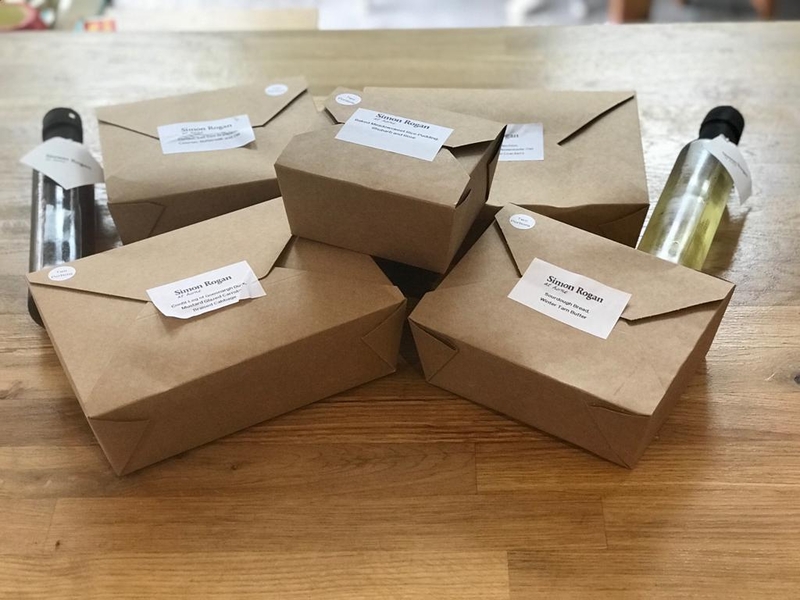
Rogan, too, believes it’s all about making small changes in how people run restaurants, “A lot of people are afraid of it because they see it as needing lots of investment.
“Of course everyone could recycle their waste by buying an enzyme compactor so they're not requiring any bin collection.
“But start with things which are within your realm and question everything you do. What pen you buy, what shirt you buy for your chefs, what stationery you buy - all these things are really easy. That will save you money and then you can get your trash compactor in the back which is going to save you money by limiting your refuse collection.”
Friar adds, “Being sustainable isn't convenient. Everyone talks about the cucumber that's wrapped in plastic but it’s an extra step to source somewhere that doesn't sell your cucumber in packaging like that.
“People are so far removed from growing produce that they have to read a date on something to see if they're going to throw it away or not rather than smelling it or tasting it. Your yoghurt isn't gonna suddenly change at midnight like Gremlins.”
"Even the smallest step people can make is a big thing. I don't live my life like some sort of zero-waste deity where I don't put anything in the bin and walk around in hemp pants and a coffee sack for a jacket. Everybody has to draw a line somewhere. But if everybody did a little bit more then we'd be in a much better place.”
The Black Swan at Oldstead Oldstead, York YO61 4BL
L'Enclume Cavendish St, Cartmel, Grange-over-Sands LA11 6QA
hypha 5 City Walls, Chester CH1 2JG
Where The Light Gets In 7 Rostron Brow, Stockport SK1 1JY
Follow Kelly Bishop on Twitter @thekelpage and Instagram @keliseating
This article was slightly amended on 28 July 2021




